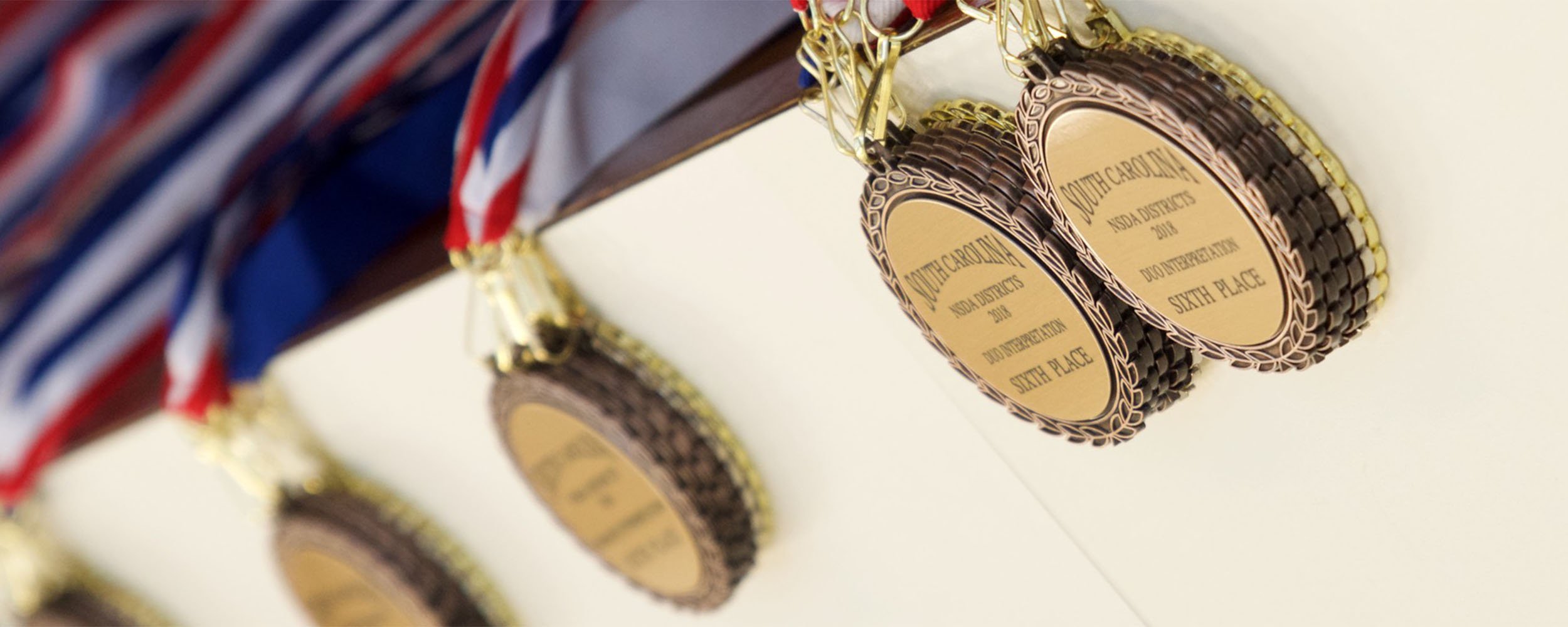
Frequently Asked Questions
Resources for Competitors, Coaches and Judges
Coaches, judges, volunteers and students will find helpful resources on this page, and information is continually being updated and added. Another good resource is the National Speech and Debate Association’s website.
Answers to Common Questions
-
The National Speech & Debate Association was created in 1925 to provide recognition and support for students (primarily in high school, though middle school programs exist) participating in speech and debate activities. While the organization has evolved over the decades, its mission is more relevant today than ever before. The NSDA connects, supports and inspires a diverse community committed to empowering students through competitive speech and debate. Find out more about the NSDA.
-
Right here on this website! Visit the Judging and Events page for concise information about events you are likely to be asked to judge.
You can also check out the Competition Events Guide (PDF), a concise guide to events. The PDF is accessible to anyone. The purpose of the Competition Events Guide is to assist members in learning about the events the Association offers. It provides insights into how to get started in each event. The guide is not a rules document, but, instead, a tool for understanding the fundamentals of events.
-
Students are judged and awarded both a rank (first, second, etc.) and speaker points (which often go from 20 to 30 points or 70 to 100 points). Speaker points are confusing for many judges, the assumption being that a first-place contestant should receive 30 points. But that’s not always best — or fair. “Speaker Points: A Rationale” is a PDF guide, created by Angela Billings of T.L. Hanna High School, that explains how to award speaker points. A good read for veteran as well as new judges.
-
The “High School Unified Manual: Chapter, Rules, and Tournament Operations” is the best place to learn more about the operation of tournaments and detailed, official rules for events. Access to the 2021–2122 manual (PDF) is open to anyone.
-
Here are a few websites some teams may find helpful. Please note that these sites are not endorsed by the SCFCA. Each team should decide what works best for their situation.
The NSDA offers a plethora of resources for teams. Visit the Resources page to find out more.
The Forensics Files provides easy-to-use topic briefs and classroom resources for new teachers and tenured coaches throughout the U.S. and the world to help lead their students to victory.
Genie (or Extemp Genie) offers software for extemp, congress and debate that can help competitors organize research data.
Looking for interp pieces? Mushroom Cloud Press offers HI, DI and DUO pieces. Kristy Thomas’ Always Writing 4 U also has a large selection of pieces, but also offers custom writing.
Champion Briefs offers educational guides, curriculum materials and other tools to improve speech and debate education. Briefs are offered monthly for PFD, LD and Big Questions.
-
The current debate topics can be found on the NSDA’s Topics webpage.

